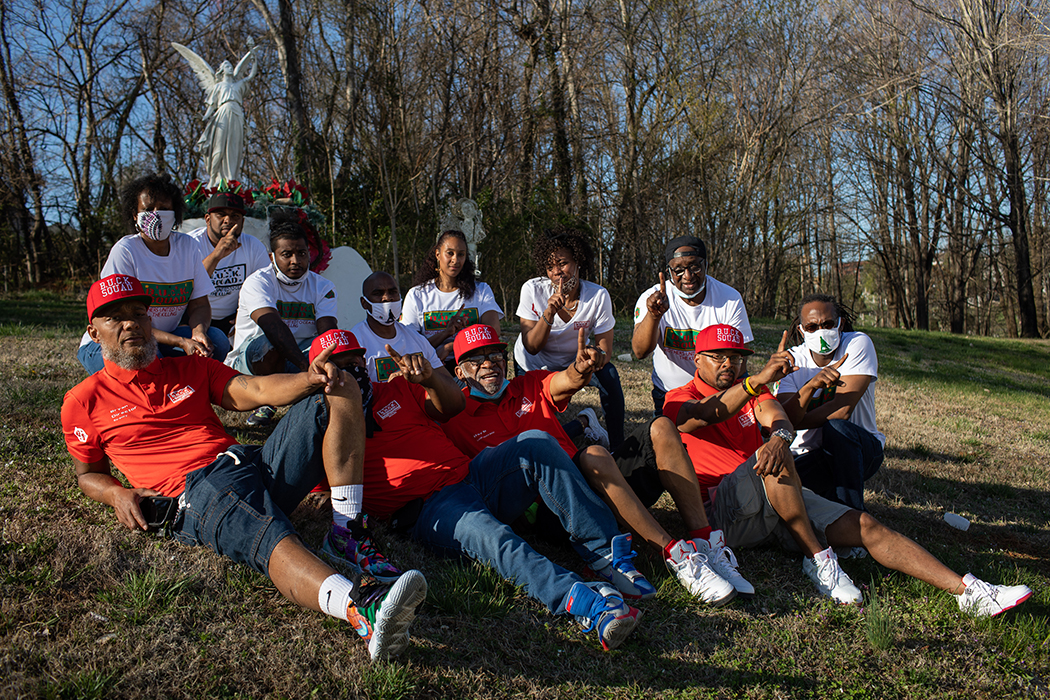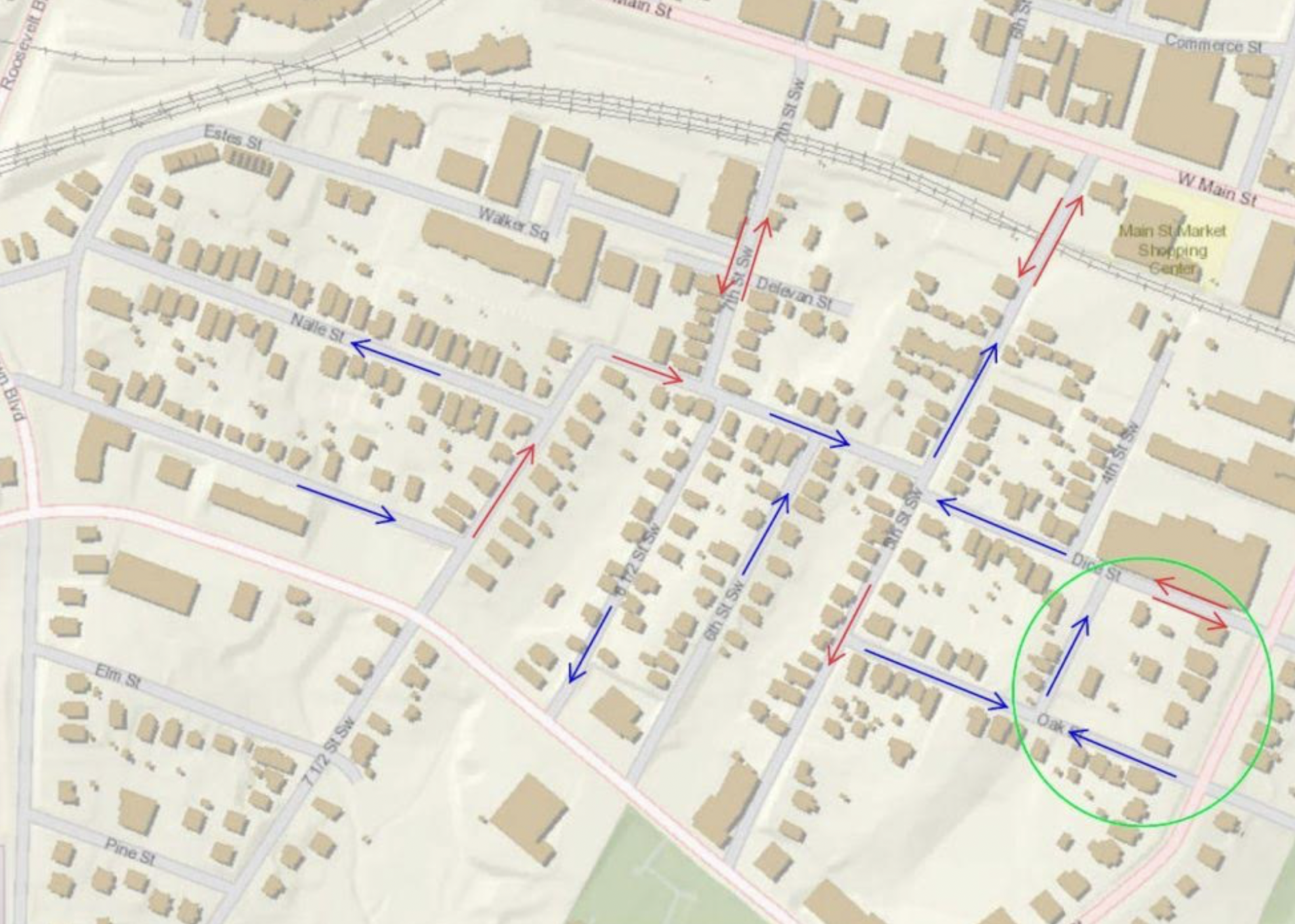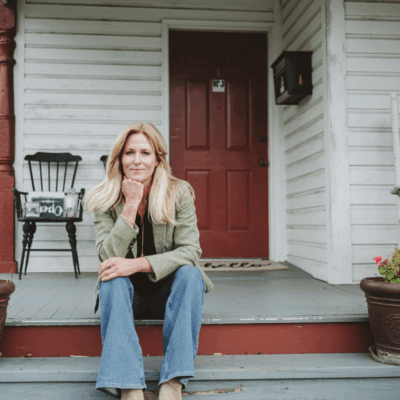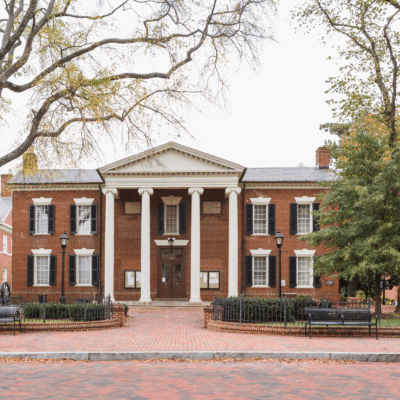Joy and laughter filled the summery Friday afternoon air, as dozens of children danced in a church parking lot across from the South First Street public housing neighborhood. People later left the dance floor to tour the inside of a rescue truck and pick out new reads from the Free Book Bus, while others waited their turn for a haircut. Kids and grown-ups alike ended the afternoon of fun with pizza, popsicles, and ice cream sandwiches.
“Our focus is on the babies out there. We are trying to change the whole perpetual cycle of ignorance,” says Pertelle Gilmore, executive director of the B.U.C.K. Squad, which sponsored the community field day. “We can put them in a position where they can be prosperous and healthy, and be the rightful rulers of their circumstance and condition.”
Investing in Charlottesville’s Black youth is one of the many ways the squad is working to put an end to gun violence, which has significantly increased in the city’s predominantly Black neighborhoods since the start of the coronavirus pandemic. Last year, Charlottesville police responded to 122 reports of shots fired and four gun-related homicides—including the December 27 murder of Gilmore’s close friend, 32-year-old Jamarcus “Buck” Washington, who was heavily involved in gun violence prevention.
Devastated by Washington’s death, Gilmore contacted his mentor Herb Dickerson the next day. Together, they put together a list of people in the Black community who they could ask and trust to take action. Within a week, the B.U.C.K.—Brothers United to Cease the Killing—Squad was out on the streets, intervening in conflicts before they turned into deadly shootings.
So far the group has been wildly successful. Out of the 40 conflicts B.U.C.K. has intervened in, only one resulted in a shooting.
“We all have a past—that’s what gives us our credibility doing the job that we do,” says Gilmore of the group. “A lot of us were birthed into environments of violence. We all had traumatic situations and have dealt with life-controlling issues, [like] addiction and substance abuse.”
“We all got to the point of maturity and understanding of our life that the way we were living was not conducive to health or wealth, but destruction,” he adds. “We have a vision together to heal the community that we once destroyed.”
Gilmore mans the squad’s crisis hotline (284-3111), which is available 24 hours a day. After he receives a call about a potentially violent conflict in a Black neighborhood, he, along with associate executive director Dickerson and supervisor Dean Smith, picks out two violence interrupters and one outreach worker to send to the scene. The mediators sit down with each party separately, and “try to get them to think rationally,” explains Gilmore.
“First thing we tell them is we love you. And it’s the truth—we want to be the embodiment and personification of love,” says Gilmore.
“A lot of people in the community, the only thing they’ve ever seen is negativity and abuse,” adds violence interrupter Shawn Harris. “We want to show them there is another way and better way. You can still achieve your goals without all the extra violence and hate.”
Once the parties agree to stand down, the mediators ask them to participate in a roundtable talk and sign a commitment contract. The parties then have to perform community service together several times a week, which could mean picking up trash or making meals for elderly residents. Meanwhile, the squad connects them with the resources they need, such as mental health care and job opportunities.
Their community service time requirement “depends on the level of the beef and [their] personalities,” explains Gilmore. “Two guys have been doing it for 45 days now because that’s how deep they were in the street.” After they complete their service, both parties are invited to get involved in the B.U.C.K Squad, and learn how they can help stop gun violence too.
“We don’t deal with no police at all. We try to get on the front end before the police have to get involved,” says Dickerson, referencing the city’s long history of police violence against Black residents. (Just this month, Charlottesville Police Chief RaShall Brackney announced that two white officers had been fired for injuring two Black men during separate incidents.)
However, the B.U.C.K. Squad is just one part of the fight to end gun violence in Charlottesville. As executive director of the Virginia chapter of New York-based Guns Down Inc., of which the squad is a part of, Gilmore and his team plan to tackle the root causes of violence through a variety of new programs, including mental health services, career development, financial planning, grief counseling, vocational training, gun buybacks, and community events.
“A lot of violence comes from mental [trauma]. It’s a disease,” says Shelly Martin, event coordinator and outreach specialist for Guns Down Virginia. “How do you stop an epidemic or pandemic? You cut the transmission,” Gilmore says.
With these much-needed services comes a hefty price tag. Gilmore says Guns Down Virginia requires $540,000 per year to run its programs. He also hopes to hire the squad’s 10 part-time violence interrupters and outreach workers as full-time employees.
“The only unsuccessful resolution that we had, it was only unsuccessful because I couldn’t get my team there because they were at work. I had to go by myself, and that was very dangerous,” says Gilmore. “We’re fighting for funding.”
In February, City Council donated about $20,000 to the B.U.C.K. Squad for conflict resolution training, but it has not offered financial support since then, says Gilmore. The group has relied on community donations, which has barely kept it afloat.
Though Gilmore does not agree with calls to take away all police funding, he believes that a portion of the city police department’s nearly $19 million budget should go toward violence interruption.
“It don’t cost much to fund what we do. It’s no price on life,” he says.
The nonprofit also needs office space and mediation centers, as well as physical locations for wraparound services across the community.
As members of City Council continue to fight amongst each other, Gilmore hopes they can get along long enough to listen to his plea for help.
“City Council needs us to do a conflict resolution and de-escalation on them,” he says. “There’s no way there’s supposed to be that much division when you got lives at stake.”





